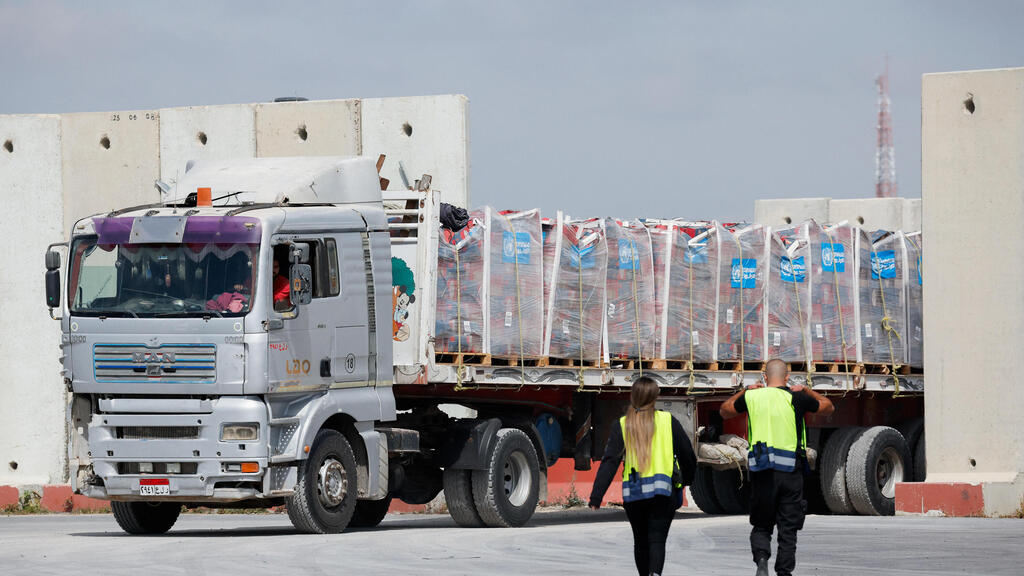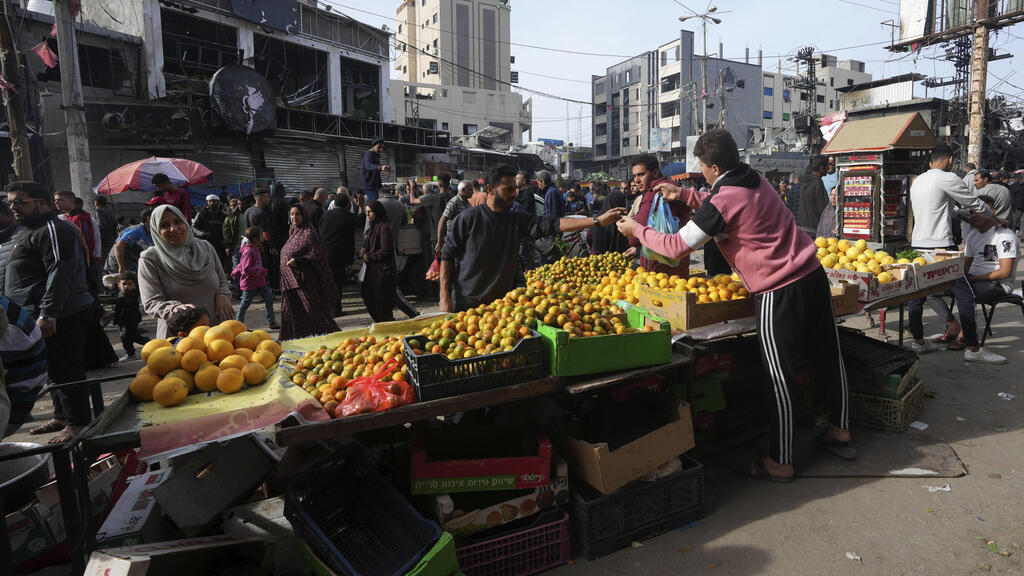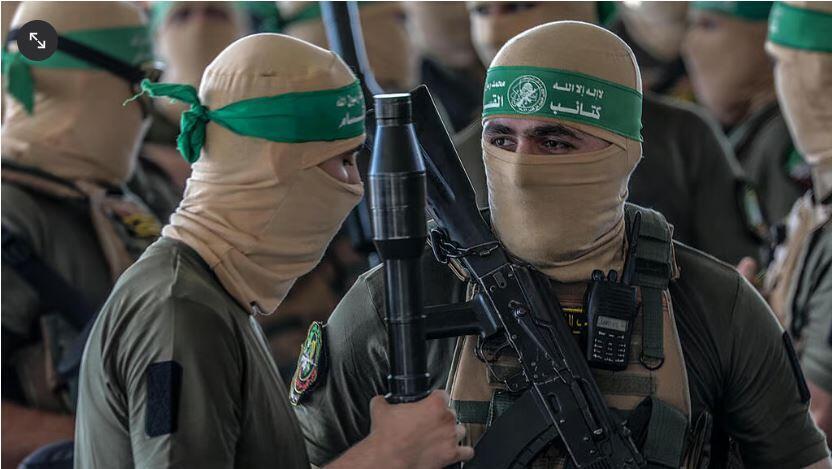Getting your Trinity Audio player ready...
No famine in Rafah
( Abu Ali Express)
Israel has recently provided data refuting accusations it was deliberately causing hunger in Gaza. According to official numbers, Israel has been providing humanitarian aid including food, water, shelter and medicine through two border crossings, in amounts that exceed the delivery from humanitarian groups.
Read more:
Accusations against Israel were made last week by the EU and UN, feeding into a narrative that has been spread on social media and in reports, by Hamas and its supporters around the world. Israel's delayed response to those accusations have solidified the narrative that the civilians in Gaza were suffering from hunger and that Israel was to blame.
3 View gallery


Truck delivering aid at the Kerem Shalom border crossing into Gaza
(Photo: Carlos Garcia Rawlins / Reuters)
According to Israeli officials, distribution of the aid that is delivered either over land or in airdrops is hampered by an inability of human rights organizations working in the Strip, to organize orderly provisions in some areas due to the ongoing fighting.
They also point to Hamas terrorists taking over the aid in order to provide it to their fighters hiding in the underground tunnel network or to sell it to vendors at exorbitant prices. According to reports, the cost of a tomato in Gaza's markets was as high as NIS 24 ($6.60)
The Coordinator for Government Activities in the Territories (COGAT) said on Thursday that since the start of the war, over 17,400 aid trucks provided humanitarian supplies to the Gaza Strip, including over 10,300 trucks carrying more than 218,000 tons of food.
For context, the daily average number of trucks carrying food to the Gaza Strip before the war was around 70, and since the beginning of March, the average has grown to over 125 — marking an 80% rise. However, a large portion of the aid is looted, mainly due to the Gazan crowds swarming the trucks.
COGAT was attempting to enlist local Gazans who were not affiliated with Hamas to assist in the distribution of the aid.
Last week, Hamas executed the leader of the local Doghmush clan in northern Gaza after reports alleged that the Israeli authorities contacted him in an attempt to enlist his family to oversee the distribution of aid in the Strip.
First published: 10:22, 03.22.24







